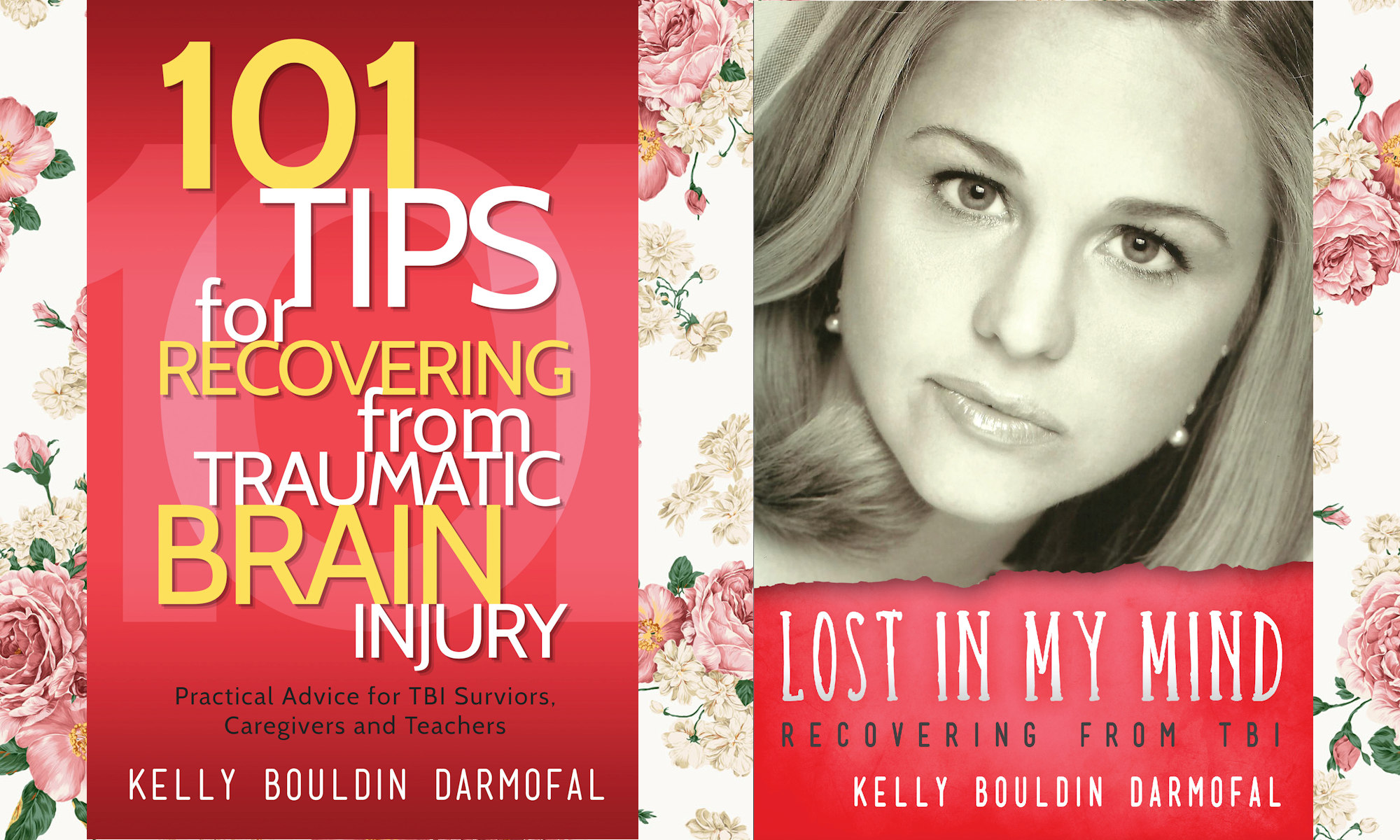Carolyn Bouldin: I can tell now from the look on Kelly’s face. When Kelly did her student teaching, she came home and said, “I have to teach a unit on Ancient Rome,” and you looked blank and I knew the problem. I knew the problem. She knew lots about Ancient Rome. She didn’t know what a unit was, and I learned slowly. I could tell where she’s snagged. So as soon as she knew what a unit was, she did beautiful work. Do you remember?
Kelly Bouldin-Darmofal: Yes.
Carolyn Bouldin: But that happens now. Yes, just common words.
Kelly Bouldin-Darmofal: Yeah.
Carolyn Bouldin: Long words are easier to remember, I think.
Carrie: You graduated high school, and what did you set your sights on next?
Kelly Bouldin-Darmofal: I graduated high school, and I wanted to go to college, without question. However, all my friends were going to places in other cities, states, all around, but I knew I had to stay relatively close to home near my doctors at Brenner’s Children’s Hospital. And so, yeah, I looked at Wake Forest and some other schools like that, that would have been way too difficult. And Wake Forest, at that time, could not agree that all of their instructors would abide by my IEP (Individualized Education Plan), which I’m sure things have changed.
Kelly Bouldin-Darmofal: And with my current laws, it would be much better, but Salem College in Winston met with me and my mom, and they did agree that even though they were private and they didn’t legally have to abide by my IEP, they told us that they would. I’m not sure. Did we get that in writing, though?
Carolyn Bouldin: Probably not, probably not in writing.
Kelly Bouldin-Darmofal: So we’ve learned from then you always get everything in writing.
Carolyn Bouldin: We’ve learned to email everything.
Kelly Bouldin-Darmofal: Yes.
Carolyn Bouldin: Everything a teacher promises you or an administrator-
Kelly Bouldin-Darmofal: You can even do it sneakily like, “Oh, I hope you have a good vacation, blah, blah, blah. By the way, when you said X, Y, and Z, is this what you meant?” And then, they’ll write back and say, “Oh yeah, that’s exactly what I meant, thank you.” And then, if you save that, then you have it.
Carolyn Bouldin: Or texting works too, but keep a record of promises.
Kelly Bouldin-Darmofal: Yeah.
Carrie: And that could be for all different kinds of reason. They could have 400 students, or they could see you in class and think you look just fine and that you don’t need that anymore. We work with a lot of students. We hear sometimes from college instructors that a student will tell them at the end of the course, “Well, I’ve had three concussions. I think I’m having a problem.” It sounds like you started out working right with the Student Disability Center, or you started right out talking about how you need help or accommodations.
Kelly Bouldin-Darmofal: I did. Actually, I had a piece of paper that pretty much listed everything I had been through, what my problems were and stuff like that, and what I needed, multiple-choice testing rather than fill in the blank, or at least fill in the blank with word banks to help trigger memories. I would hand that to each one of my teachers the first day of class, because that way they would know without me having to explain it to them, because I was still having a lot more difficulties with expressing my needs, advocating for myself.
I had a lot of difficulty with that. And also, I had a great amount of anxiety, and I still have so much trouble with anxiety, that just to have that piece of paper with me, it took so much anxiety away, because I knew that I could just hand that to them. I wouldn’t even have to tell them what it was, and they could read it and learn pretty much all they needed to know about me as a student, and I didn’t have anxiety.
Carrie: What do you say to a fellow survivor who maybe doesn’t want to disclose that, because they don’t want to be seen as different by their instructor?
Kelly Bouldin-Darmofal: Well, yeah, it is hard. People who just experienced a TBI, they don’t want to be seen as different, and I was exactly like that too, but just keeping it real. I mean, if you have had a TBI, people know. People can tell. Oh yeah, thank you, Mom. From 101 Tips, my book, it says, “Number three, tips for TBI survivors, denial can both hurt and help you. However, you must learn to accept your body’s recovery pace.” So basically, you do have to come to terms with what you are able to do and what you’re not able to do.
And from that, you’ll come to a place where you will realize that you’ll have to disclose some things about what your limitations are, because if you don’t, then people will probably think worse about you.
Carolyn Bouldin: I found the denial very difficult. Kelly wanted to drive a car before she should’ve, go places she shouldn’t. I can’t tell you how many things, but-
Kelly Bouldin-Darmofal: But denial can also help you.
Carolyn Bouldin: She pushed herself. She took honors’ classes when she could have taken basic classes, and that helped. You rise to the level of your competition, I do believe, and I think it helped her. So it’s not easy to admit that you’re flawed, but once you can, people are wonderful.
Kelly Bouldin-Darmofal: It took me years.
Carolyn Bouldin: Yes, years.



